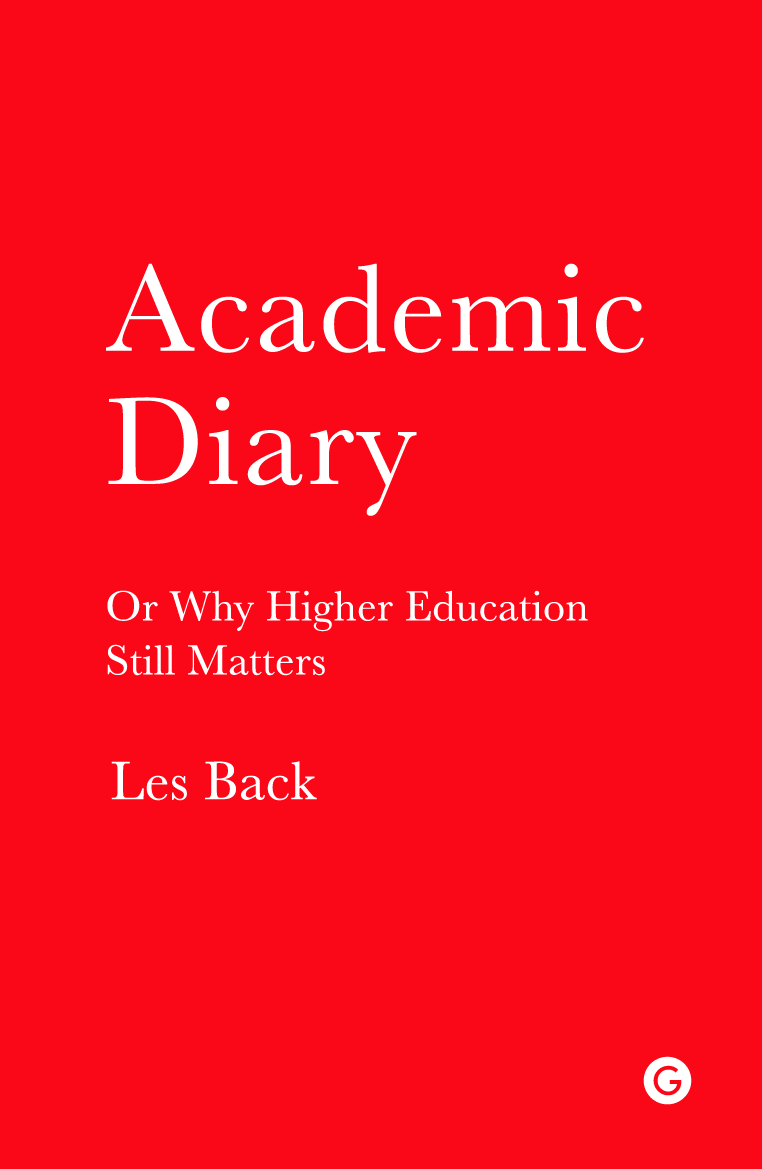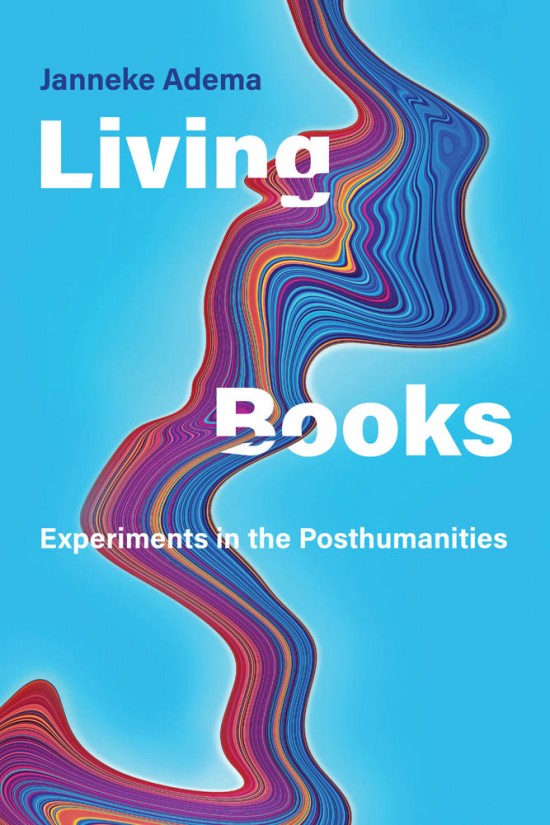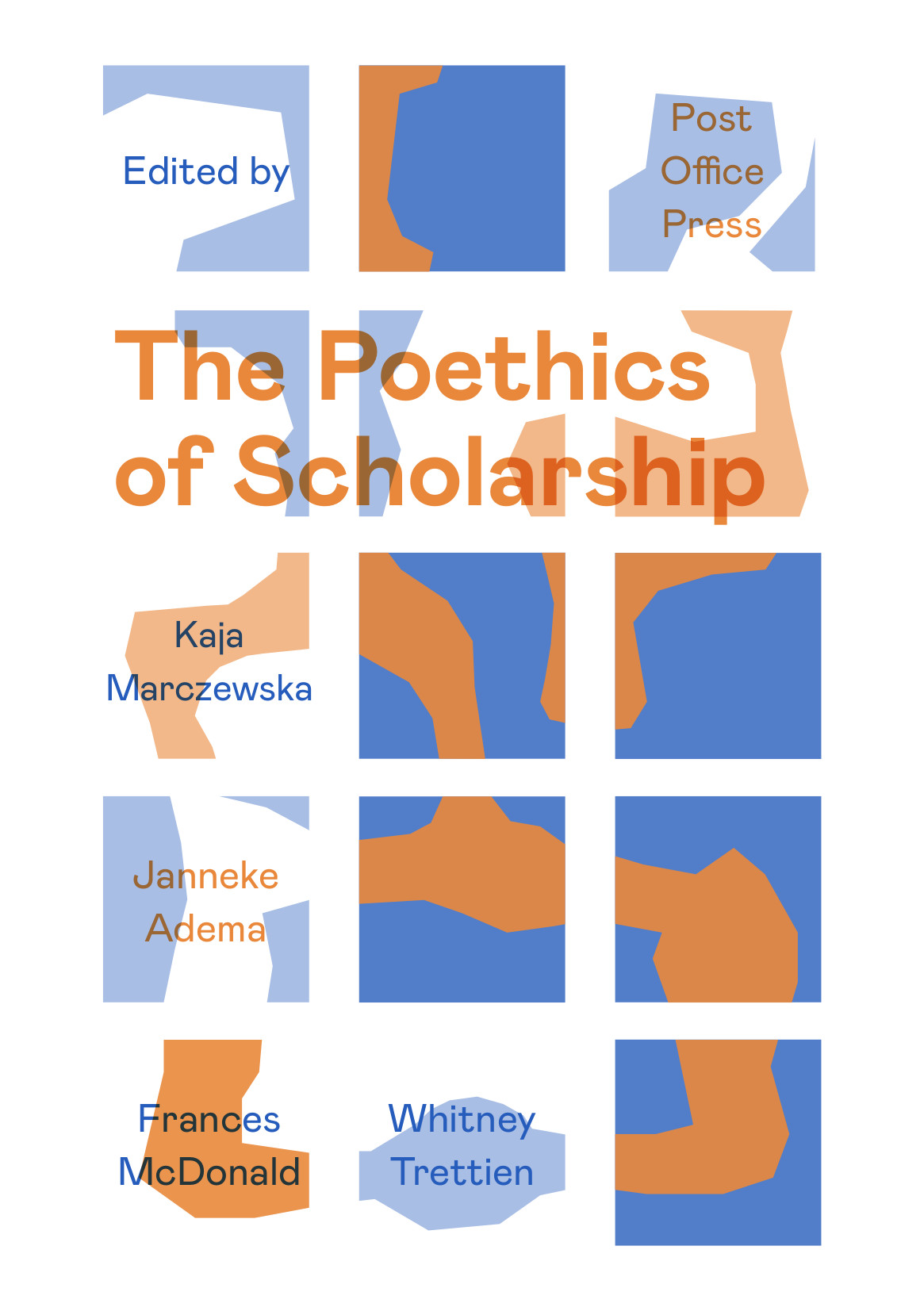Les Back: Academic Diary, or Why Higher Education Still Matters (2016)
Filed under book | Tags: · academia, diary, education, scholarship, sociology, university

“Les Back has chronicled three decades of his academic career, turning his sharp and often satirical eye to the everyday aspects of life on campus and the larger forces that are reshaping it. Presented as a collection of entries from a single academic year, the diary moves from the local to the global, from PowerPoint to the halls of power. With entries like Ivory Towers and The Library Angel, these smart, humorous and sometimes absurd campus tales not only demystify the opaque rituals of scholarship, they offer a personal route into the far-reaching issues of university life. From the impact of commercialisation and fee increases to measurement and auditing research, the diary offers a critical diagnosis of higher education today. At the same time, it is a passionate argument for the life of the mind, the importance of collaborative thinking and why scholarship and writing are still vital for making sense of our troubled and divided world.”
Publisher Goldsmiths Press, London, 2016
Open access
ISBN 9781906897581, 1906897581
xiii+258 pages
Reviews: Rose Deller (LSE Review of Books, 2016), Andrew Robinson (Times Higher Education, 2016), Rosalind Gill (Int’l J Politics, Culture, and Society, 2018), Bridget Hanna.
Book website (archived)
Publisher
WorldCat
Janneke Adema: Living Books: Experiments in the Posthumanities (2021)
Filed under book | Tags: · archive, authorship, book, collaboration, community, copyright, hypertext, media, neoliberalism, open access, openness, print, publishing, scholarship, university, versioning, wiki

“Reimagining the scholarly book as living and collaborative—not as commodified and essentialized, but in all its dynamic materiality.
In this book, Janneke Adema proposes that we reimagine the scholarly book as a living and collaborative project—not as linear, bound, and fixed, but as fluid, remixed, and liquid, a space for experimentation. She presents a series of cutting-edge experiments in arts and humanities book publishing, showcasing the radical new forms that book-based scholarly work might take in the digital age. Adema’s proposed alternative futures for the scholarly book go beyond such print-based assumptions as fixity, stability, the single author, originality, and copyright, reaching instead for a dynamic and emergent materiality.
Adema suggests ways to unbind the book, describing experiments in scholarly book publishing with new forms of anonymous collaborative authorship, radical open access publishing, and processual, living, and remixed publications, among other practices. She doesn’t cast digital as the solution and print as the problem; the problem in scholarly publishing, she argues, is not print itself, but the way print has been commodified and essentialized. Adema explores alternative, more ethical models of authorship; constructs an alternative genealogy of openness; and examines opportunities for intervention in current cultures of knowledge production. Finally, asking why it is that we cut and bind our research together at all, she examines two book publishing projects that experiment with remix and reuse and try to rethink and reperform the book-apparatus by taking responsibility for the cuts they make.”
Publisher MIT Press, August 2021
Leonardo series
Creative Commons BY-NC 4.0 International License
ISBN 9780262046022, 0262046024
xiii+335 pages
Interview with author: Erzsébet Tóth-Czifra (Dariah Open, 2021).
Comment (0)Post Office Press (ed.): The Poethics of Scholarship (2018)
Filed under book | Tags: · aesthetics, care, ethics, experimental publishing, open access, poetics, publishing, scholarship

“This pamphlet explores ways in which to engage scholars to further elaborate the poethics of their scholarship. Following Joan Retallack, who has written extensively about the responsibility that comes with formulating and performing a poetics, which she has captured in her concept of poethics (with an added h), this pamphlet examines what connects the ‘doing’ of scholarship with the ethical components of research. Here, in order to remain ethical we are not able to determine in advance what being ethical would look like, yet, at the same time, ethical decisions need to be made and are being made as part of our publishing practices: where we publish and with whom, in an open way or not, in what form and shape and in which formats. Should we then consider the poethics of scholarship as a poetics of/as change, or as Retallack calls it, a poetics of the swerve (clinamen), which continuously unsettles our familiar notions?
This pamphlet considers how, along with discussions about the contents of our scholarship, and about the different methodologies, theories and politics that we use to give meaning and structure to our research, we should have similar deliberations about the way we do research. This involves paying more attention to the crafting of our own aesthetics and poetics as scholars, including a focus on the medial forms, the formats, and the graphic spaces in and through which we communicate and perform scholarship (and the discourses that surround these), as well as the structures and institutions that shape and determine our scholarly practices.”
Contributions by Janneke Adema, Kaja Marczewska, Frances McDonald and Whitney Trettien.
Publisher Post Office Press & Rope Press, Coventry, 2018
Creative Commons BY 4.0 License
34 pages

